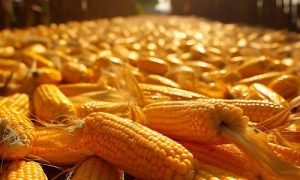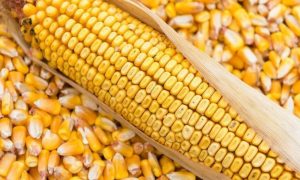Nigeria approves four biotech corn varieties

LAGOS, NIGERIA — Nigeria has approved the commercialization of genetically engineered corn, raising hopes of greater yields from crops with improved insect resistance and drought tolerance, according to a Global Agricultural Information Network (GAIN) report from the Foreign Agricultural Service (FAS) of the US Department of Agriculture.
Nigeria approved the commercial release of four TELA corn (maize) varieties on Jan. 11, joining South Africa as the only nations in Africa to approve the commercialization of genetically engineered corn.
In marketing year 2022-23, Nigeria produced an estimated 12.7 million tonnes of corn, with an average yield of 2.2 tonnes per hectare, the FAS said. According to the African Agriculture
Technology Foundation (AATF), yields of TELA maize could reach up to 10 tonnes per hectare if grown under good agronomic practices.
According to AATF, the varieties – SAMMAZ 72T, SAMMAZ 73T, SAMMAZ 74T, and SAMMAZ 75T – are owned by the respective institutions that developed them, including the national government research organizations, and they will be licensed to local seed companies royalty-free through the AATF.
In 2016, outbreaks of fall armyworm were first detected in Nigeria, and quickly spread to other areas in West Africa and the continent. According to several studies, fall armyworm (FAW) can reduce corn production in affected areas by 20-50%, and raise production costs through increased labor and pesticide applications.
“Compared to traditional hybrids, TELA maize could potentially reverse yield loss, reduce labor and input costs, and lower pesticide use,” the FAS said. “For comparison, South Africa doubled corn yields over the past 20 years, in part after adopting insect-resistant genetically engineered corn varieties s following the approval of the ‘GMO’ Act of 1997.”
As an estimated 95% of Nigeria’s seed companies cannot produce hybrid seeds, it is expected that the first batch of TELA maize planting seeds would be imported from South Africa.
With 223 million people, Nigeria’s consumption of corn was estimated at 12.9 million tonnes in 2022-23. Household consumption accounts for 10-15% of total corn use, according to the FAS.
Corn is an essential part of many families’ diets in the northern half of the country. It can be consumed as corn flour, roasted or boiled whole, or prepared as porridge. About 20% of production goes into animal feed, particularly poultry feed. The food and beverage industry uses the remainder as a food and beverage processing ingredient.
Source Link: https://www.world-grain.com/articles/19624-nigeria-approves-four-biotech-corn-varieties

















